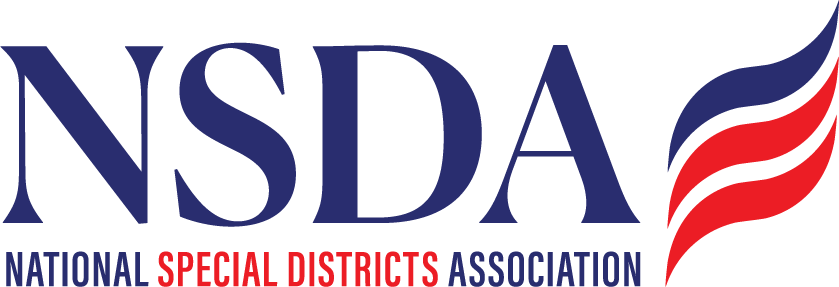NSDC Weekly Updates: July 22, 2024
House and Senate Action
Both chambers return to action this week. The House gaveled in earlier today and will consider a slate of noncontroversial bills on the suspension calendar, including legislation (H.R. 8812) that would reauthorize the Water Resources Development Act (WRDA). The legislation, which authorizes programs and projects under the purview of the U.S. Army Corps of Engineers Civil Works Program, is typically renewed by Congress on a biennial basis. This year's House bill includes 159 new feasibility studies for locally proposed projects, as well as 12 projects that have been reviewed by the Corps and have culminated in a final report to Congress. Starting Tuesday, the lower chamber will consider two (of 12) spending bills for fiscal year 2025, including Energy-Water Development (H.R. 8997) and Interior-Environment (H.R. 8998). Two other funding bills were initially scheduled for action this week, namely those covering Financial Services (H.R. 8773) and Agriculture-Rural Development (H.R. 9027), but have since been pulled from consideration over concerns about spending levels and controversial policy riders. The full legislative calendar can be accessed here.
Across Capitol Hill, the Senate will continue its focus on nominations. The Senate schedule is available here.
Special District Grant Accessibility Act Set for Senate Committee Consideration
On Wednesday, the Senate Homeland Security and Governmental Affairs Committee is slated to formally consider the Special District Grant Accessibility Act (SDGAA). The legislation (H.R. 7525; S. 4673) would codify a first-ever, formal definition of “special district” and would require the White House Office of Management and Budget (OMB) to issue guidance to federal agencies requiring special districts to be recognized as local governments for the purpose of federal financial assistance determinations.
One of the leading factors driving the need for the SDGAA is the fact that special districts were omitted in COVID-19-era legislation that provided direct federal financial assistance to local governments for coronavirus relief and response activities (namely CARES Act funding and ARPA Fiscal Recovery Fund dollars). Unlike other forms of local government, special districts were excluded from receiving direct federal aid despite the fact that many special districts provided essential public services throughout the COVID-19 pandemic, including ambulance/EMS, hospital, and open space services. Moreover, while special districts are eligible for the vast majority of current federal funding opportunities, they are ineligible for – or face barriers to accessing – certain grant programs. The SDGAA seeks to level the playing field by ensuring that special districts have access to all appropriate and relevant federal funding streams.
Additional information on the committee markup can be accessed here.
Relevant Hearings and Markups
House Ways and Means Committee: On Wednesday morning, the full committee will mark up two bipartisan bills, the Strengthening State and Tribal Child Support Act (H.R. 7906) and the Protecting America’s Children by Strengthening Families Act (H.R. 9076).
House Natural Resources Committee: On Tuesday morning, the Subcommittee on Energy and Mineral Resources will hold a legislative hearing on four bills within the panel’s jurisdiction, including legislation (H.R. 8954) that would create a revenue sharing mechanism for wind and solar energy development on public lands (25% to the State hosting the production; 25% to the county hosting the production; 25% to the Renewable Energy Resource Conservation Fund; and 25% to aid agencies in the processing of renewable energy permits on federal lands). Pursuant to the bill, a newly established Renewable Energy Resource Conservation Fund would help restore and protect landscapes in regions where renewable energy development occurs. The panel will also receive testimony on a bill (H.R. 8665) that establishes a supercritical geothermal research program and the Department of Energy and provides grant opportunities for supercritical geothermal technologies. More information on the hearing, including a full list of bills under review, can be accessed here.
House Transportation and Infrastructure Committee: On Tuesday afternoon, the Subcommittee on Railroads, Pipelines, and Hazardous Materials will meet to examine the state of rail safety. Federal Railroad Administration Administrator Amit Bose is among those slated to testify. On Wednesday morning, the Subcommittee on Highways and Transit will hear from invited witnesses on the Transportation Department’s regulatory and administrative agenda. More details on the two hearings is available here.
House Agriculture Committee: On Tuesday morning, the panel will meet for a hearing entitled, “Financial Conditions in Farm Country.” A livestream of the hearing will be available here, beginning at 10am ET.
House Education and the Workforce Committee: On Wednesday morning, the Subcommittee on Workforce Protections will hold a hearing on “Safeguarding Workers and Employers from OSHA Overreach and Skewed Priorities.” More detail on the hearing can be found here.
House Financial Services Committee: On Tuesday morning, the full committee will meet to consider the benefits, risks, and consequences of artificial intelligence on the financial services and housing markets. The hearing coincides with the release of a staff report from the Bipartisan Working Group on Artificial Intelligence. Additional information on the hearing can be here.
Senate Appropriations Committee: On Thursday morning, the committee will consider four (of 12) fiscal year 2025 spending bills, including those covering Commerce-Justice-Science; Interior and Environment; State and Foreign Relations; and, Transportation-Housing and Urban Development. Additional details on the markup can be found here.
Senate Commerce, Science, and Transportation Committee: On Tuesday morning, the Subcommittee on Surface Transportation, Maritime, Freight and Ports will convene a subcommittee field hearing in Lansing, Michigan, to examine the impact of the bipartisan infrastructure law on transportation infrastructure. More information on the hearing can be found here.
